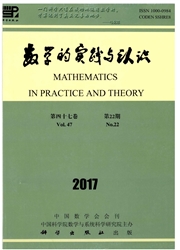

 中文摘要:
中文摘要:
可持续发展是人类社会的共同目标,太阳能光伏组件在使用过程中绿色环保零排放,但在制造过程中却要消耗各种能源并产生污染排放,对于光伏企业而言,最重要的目标不仅在于降低产品成本,更在于提高整个产品生命周期内的“环境保护/污染排放”比值.引入CO2作为光伏企业的非期望产出,运用DEA模型和动态Malmquist指数模型,对中国24家上市光伏企业2008-2014年的相关投入与产出数据进行研究,在此基础上,通过Tobit回归模型分析影响光伏企业绿色效率的因素.结果表明:中国光伏企业各效率值都维持在较高水平;非期望产出的绿色全要素生产率都存在明显下降趋势,表明企业CO2排放下降,生产过程中能源效率提高;而研发人员占比、高层管理者对环境态度都对光伏企业的节能减排和绿色发展有正向影响.
 英文摘要:
英文摘要:
Sustainable development is the common goal of human society. During the process of electricity generation, photovoltaic modules emit no harmful pollutants. However, production and emission of pollutants during manufacturing are inevitable. For photovoltaic enterprises, the most significant goal is not only to reduce product costs, but also to improve the ratio of 'environmental protection/pollution emission' during the entire product circle of photovoltaic products. In this paper, CO2 is introduced as the undesirable output of photovoltaic manufacturing industry. We adopted DEA model and Malmquist model to analyze the input and output data of 24 listed PV manufacturers in China from 2008 to 2014. We also adopted Tobit regression model to analyze the factors which could affect the green efficiency of PV enterprises. The results indicate that the efficiency values of PV enterprises in China were maintained at relatively high level. The green total factor productivity (TFP) values of unexpected output appeared significant downward trend, which indicated that the emissions of CO2 decreased and the energy efficiency values improved in the manufacturing process. The proportion of research personnel and top executives' attitude toward environment, both have positive influences on green development of photovoltaic enterprises.
 同期刊论文项目
同期刊论文项目
 同项目期刊论文
同项目期刊论文
 期刊信息
期刊信息
